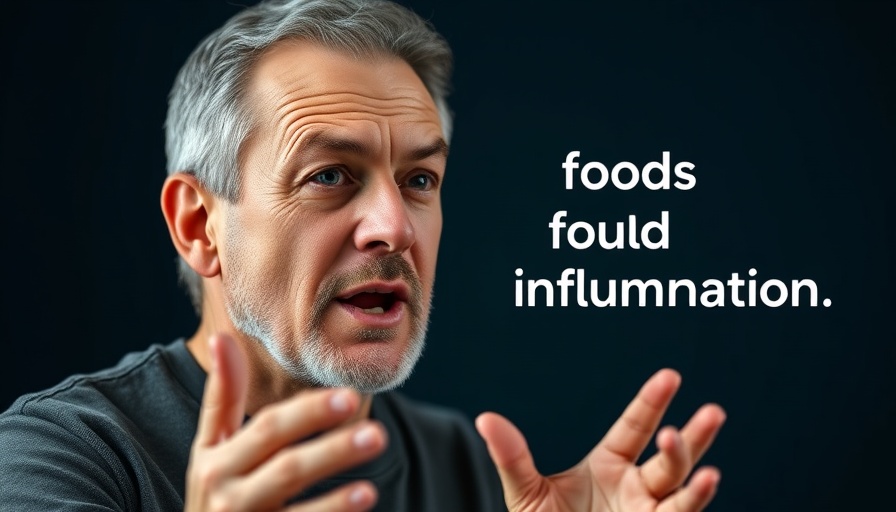
Understanding Weight Loss After 40: It's Not Just About Calories
Many of us have been led to believe that the secret to shedding pounds is through endless workouts and drastic dieting. However, according to weight loss expert Dr. Jason Fung, this approach falls short, especially for those over 40. Research reveals that after this age, our bodies undergo significant hormonal changes that impact weight management, making traditional advice largely ineffective.
In 'No.1 Hormonal Trick That BURN MORE FAT Than Exercises After 40', the discussion dives into the impact of hormones on weight loss after 40, leading us to explore deeper insights and strategies to help families navigate this crucial aspect of health.
A powerful study from the Journal of the American Diabetic Association found that weight loss methods combining strict dieting and exercise yield negligible results over time. Participants in this extensive analysis saw an initial drop in weight, but after six months, they faced regaining much of what they lost. This pattern is not isolated. Numerous studies suggest that the relentless cycle of dieting and exercising does not lead to sustainable weight loss later in life.
The Hormonal Battle: Leptin vs. Insulin
Why is this the case? It boils down to the complex interplay of hormones within our bodies. Two key hormones, leptin and insulin, dictate whether we burn or store fat. Leptin signals to our brains when we're full, while insulin determines fat storage. As we age, many individuals develop leptin resistance, leading to constant cravings and insatiable hunger. This hormonal imbalance means that despite efforts to eat less or exercise more, managing weight becomes increasingly difficult.
The good news is that understanding the relationship between these hormones can empower you to regain control over your weight. Rather than fighting against your body's natural tendencies, it's about nurturing a healthy hormonal balance.
Reversing Leptin Resistance Through Diet
Dr. Fung emphasizes the importance of protein in our diets for combating leptin resistance. Consuming sufficient protein can enhance leptin's effectiveness, signaling to our brains that we are satisfied. Additionally, protein helps maintain muscle mass, which burns more calories, amplifying fat loss naturally. Aim for a diet where protein constitutes 30-40% of your meals to see a positive shift in your body’s response.
Managing Insulin: Timing and Composition Matter
Insulin control also plays a critical role in weight management after 40. One vital strategy is maintaining longer breaks between meals, which can promote a natural rhythm of intermittent fasting. Incorporating healthy fats throughout your meals will help keep insulin levels in check and sustain feelings of fullness. A diet that prioritizes these elements can be transformative, allowing both dietary fats and your own stored fat to become ongoing sources of energy.
Finding Balance: The Path to Wellness
As families navigate the complexities of health during significant life transitions, these insights provide a refreshing outlook on weight loss. It’s essential to recognize that true wellness goes beyond superficial dietary changes or exercise regimens. By focusing on nutrient-rich foods, especially proteins and healthy fats, and understanding our hormonal needs, we can foster an environment where healthy living becomes the norm, not the challenge.
As you explore your family’s approach to health and wellness, remember that sustainable change starts with knowledge and empowerment. Make it a priority to incorporate these strategies and see how they transform your family's well-being.
 Add Row
Add Row  Add
Add 


Write A Comment